
Celebrating its landmark 20th edition, this year’s Asian Contents & Film Market (ACFM) is set to be the biggest and most innovative to date.
Previously known as the Asian Film Market, it was first announced at a launch party during the Berlinale in February 2006, attended by hundreds of key industry players, sales agents and buyers. The inaugural edition kicked off eight months later in the now redeveloped Grand Hotel in Busan and hosted 554 companies from 35 countries and 1,160 registered participants.
This year, it returns from September 20-23 in parallel with the 30th Busan International Film Festival (BIFF) and expects to welcome around 1,000 companies from 50 countries and more than 2,900 registered participants, doubling that of the inaugural year.
Booth sales have exceeded last year’s record and badge registrations are significantly higher, delivering the largest edition yet. Total attendance, including festival badge holders who access the market events and exhibition halls, is projected to reach an all-time high of 30,000.
What has also evolved significantly over the years is the structure of the market. “Rather than being centred on traditional sales companies, we now see a greater presence of national pavilions as well as companies connected to new initiatives such as InnoAsia,” says ACFM director Ellen YD Kim, referring to its newly launched platform for innovative content, which debuts this year.
Under the theme ‘From IP to Innovation’, this year’s ACFM expands into a comprehensive marketplace that ranges from intellectual property to cutting-edge innovation. Last year’s debut of the AI Conference was met with an enthusiastic response. This paved the way for the launch of InnoAsia, which aims to bridge state-of-the-art technology with creativity to create new possibilities for cross-sector collaboration.
InnoAsia will bring together global technology leaders Google and Amazon, Chinese artificial intelligence firms such as Kling AI, PixVerse and TikTok’s Jimeng AI with Korean creatives and policy bodies such as the Korean Film Council, Korea Creative Content Agency and Seoul Business Agency.
Turning points
The spectrum of participants has also expanded beyond the classic film sellers and buyers, as well as filmmakers looking for financing in the project and story market, into those exploring innovative technologies for investment and production opportunities.
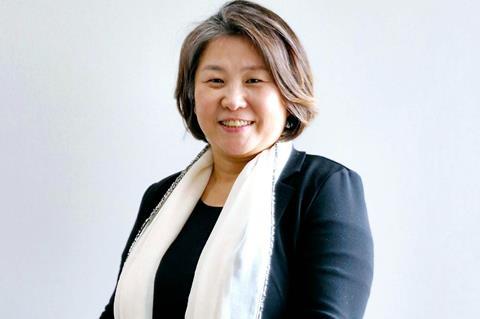
“The film industry itself has gone through many turning points driven by technological advances,” says Kim. “We are now at a point where technological innovation and creative capacity converge into a new industrial paradigm.
“If streaming transformed distribution and audience viewing behaviour, AI is now reshaping the creative process. Our challenge is to ride this wave of change and pioneer new pathways forward.”
The first two editions of ACFM were held at the Grand Hotel, followed by a further three at the Seacloud Hotel by Haeundae Beach; it moved to Busan Exhibition and Convention Center (Bexco) in 2011. “The hotel setting focused on one-to-one business negotiations with clearly defined counterparts,” recalls Kim, who was marketing manager of the inaugural edition in 2006 and rejoined ACFM last year as market director. Coincidentally, Park Kwang-su was the market director of that first edition and also returned to BIFF last year as chairperson.
“By contrast, with participants from diverse ecosystems all gathered under one roof, the chance encounters and unplanned interactions significantly enhance business potential and strengthen the market’s role as a global business platform,” adds Kim.
This year, ACFM will be held in the same exhibition hall at Bexco, but it has also rented event space on the upper floor to accommodate more exhibitors. The number of industry events has also more than doubled, including The A, a newly launched leadership platform for sharing key Asian industry data from the first half of the year and exploring industry collaboration and future directions.
A number of large Asian pavilions will make their presence felt, including from Thailand, Taiwan, Hong Kong, the Philippines and Indonesia. The Italian Trade Agency and European Film Promotion host one of the biggest booths, while new regions of the Middle East, Latin America and Africa are increasingly represented.
Various Busan-based institutions will be prominently displayed, not least the Asian Film Commission Networks, Busan Asian Film School and Busan Film & Audiovisual Industry Center, all under the banner of Busan Film Commission.
Among the anchor Korean exhibitors are sales companies Showbox, K-Movie Entertainment, Contents Panda and Hive Filmworks. Also making an appearance on the exhibition floor are Barunson E&A, CJ 4Dplex, CMnix, Finecut, KT Studio Genie, Lotte Entertainment, M-Line Distribution and Plus M Entertainment.
Calendar move
In a rare shift, ACFM along with BIFF takes place two weeks earlier than their usual slot in early October due to Chuseok (Korean Thanksgiving). These earlier dates will bring ACFM much closer to Venice, Toronto, China’s Pingyao and the newly revived Bangkok film festivals, which all run in September, but further away from Tokyo’s content market Tiffcom (October 29-31), shaking up the travel schedule of industry executives.
“The earlier September slot certainly makes the schedule tighter and challenging for buyers attending Venice and Toronto,” says Albert Yao of Taiwan-based distributor Swallow Wings Films, who has just returned from Toronto, an event that has been on his schedule for many years as it is an opportunity to watch a wide selection of target films.
Yao attends at least one physical market each season to keep pace with the latest line-up of sales agents. “Many now attend markets for a shorter period, which makes it harder to catch up with everyone in one place,” he says. “But ACFM remains an important market for me as a Taiwanese distributor — both for acquisitions and for presenting Taiwanese films to international partners.”
Yao is predominantly looking for Korean and Japanese films at ACFM, while also promoting Christopher Ma’s Taiwanese horror film Eerie Hometown, which stars Regina Lei, a Taiwanese actress known for Korean drama series Twelve.
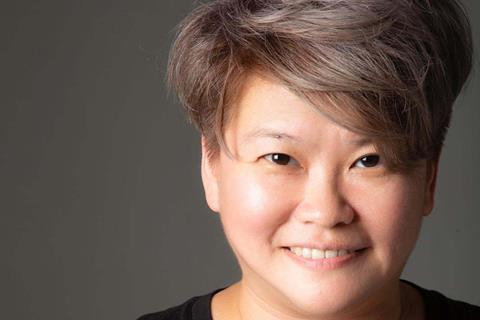
Now two months apart, the widened gap between ACFM and Tiffcom is welcomed by buyers such as Joyce Lee of Encore Films, as each market now has more room to play to its strengths.
“Viewing habits have changed post-Covid, and the trend is that audiences look for more Asian titles than US titles,” she says. “Local content is going strong in Malaysia, Indonesia and Vietnam, while Japanese animation is also a draw, as well as Chinese animation.”
The Singapore-based buyer previously secured multiple territory rights to two hit Chinese animations: Ne Zha 2 for 21 Asian territories and The Legend Of Hei 2 for 16 territories.
Lee is looking forward to catching up with existing partners at ACFM, both from Asia and beyond. “Several key US sales companies are coming to Busan, as fewer Asian buyers are going to AFM,” she adds.
Fuelling the pipeline
ACFM continues to strengthen the multifaceted support for the co-production ecosystem, forming a fully integrated pipeline from development to distribution. The Asian Project Market (APM), which originated in 1998 as Pusan Promotion Plan, continues to link emerging Asian directors and producers with global investors; the Producer Hub enters its second year with Canada named as this year’s focus country to foster active collaborations between English-speaking territories and Asia; and the new Doc Square is dedicated to documentary co-production and distribution.
The Asian Cinema Fund, which has long provided financial support for script development, documentary production and post-production, offers a new co-production support fund, presented by Thailand’s Hylife Group, to extend its support to international co-production film projects with Korea.
Among the 30 projects on APM’s line-up this year is family drama Wake Me Up When The Mourning Ends by Malaysian filmmaker Lau Kok Rui, who won best new director at the 2022 Golden Horse Awards for The Sunny Side Of The Street.
His new project has gone through HAF Film Lab, Talents Tokyo and Golden Horse Film Project Promotion, and has secured development funding from Taiwan’s TAICCA. It has now locked in more key creative leads, with producers Soi Cheang and Stefano Centini newly on board alongside Wong Kew Soon.
“APM represents so much more than just a financing platform for me,” says Lau. “It’s where real creative dialogue happens. There’s something special about having so many visionary filmmakers gathered in one place, all willing to engage deeply with your work and offer the kind of honest, constructive feedback that shapes a project.”


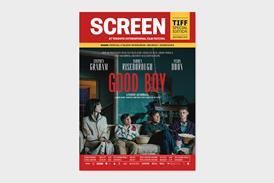



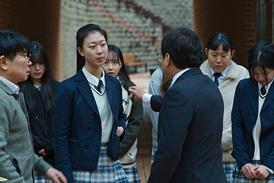


![[Clockwise from top left]: 'The Voice Of Hind Rajab', 'A House Of Dynamite', 'Jay Kelly', 'After The Hunt', 'The Smashing Machine'](https://d1nslcd7m2225b.cloudfront.net/Pictures/274x183/1/7/0/1459170_veniceawards_837515.jpg)






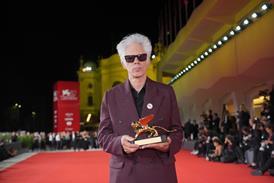








No comments yet